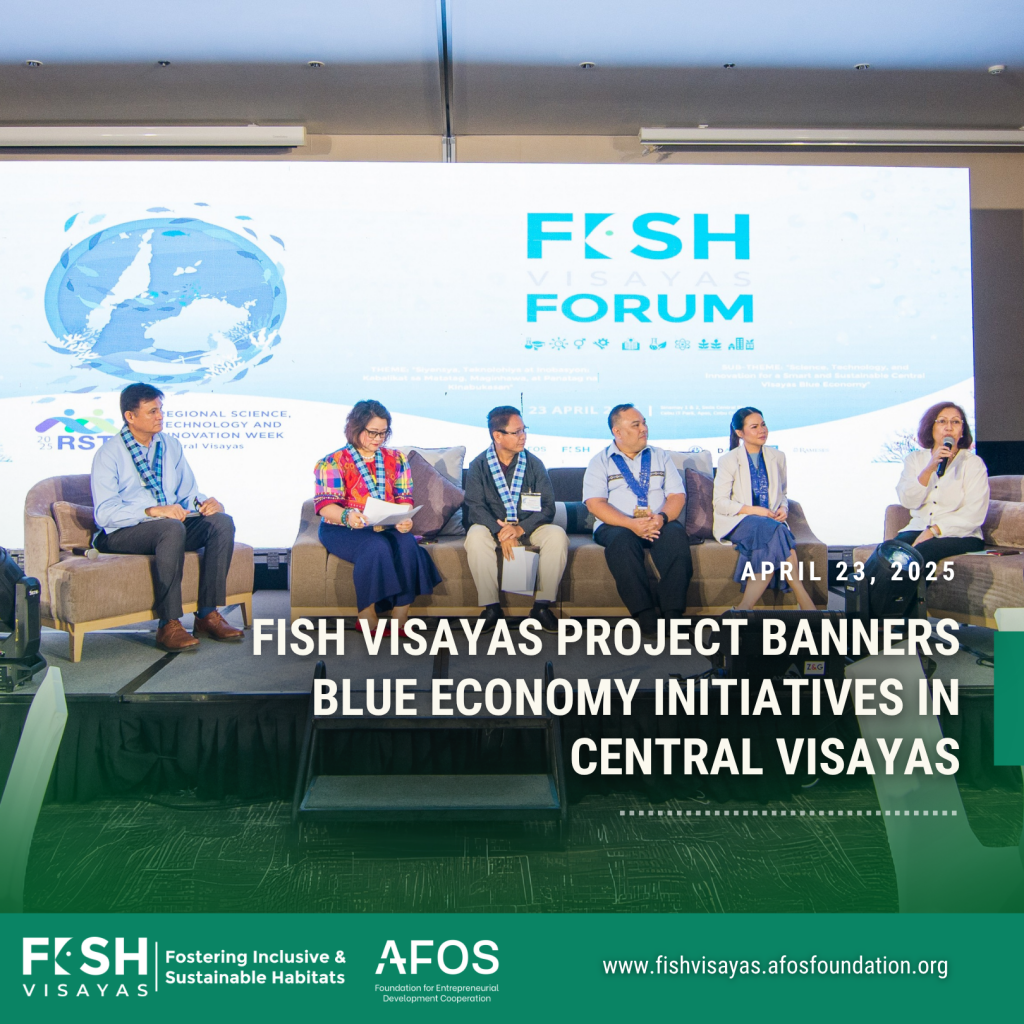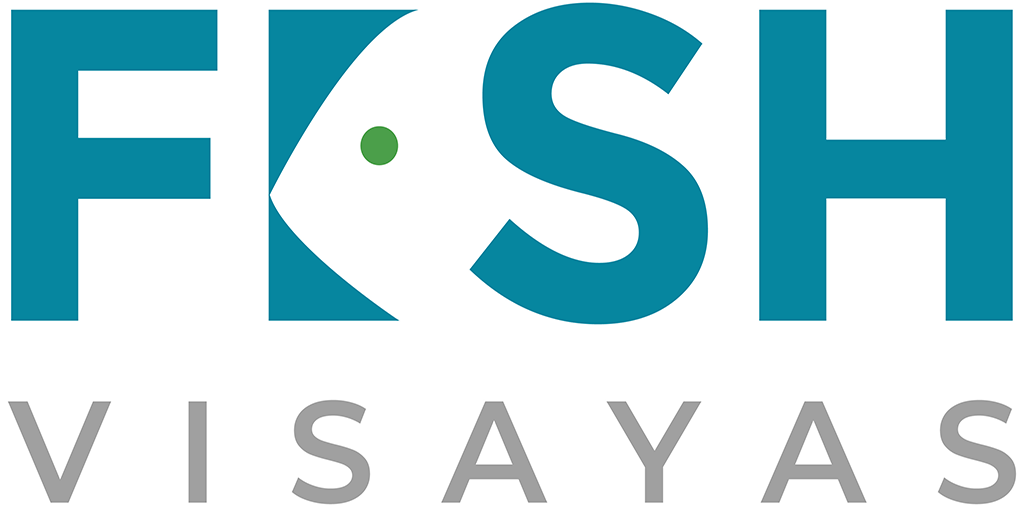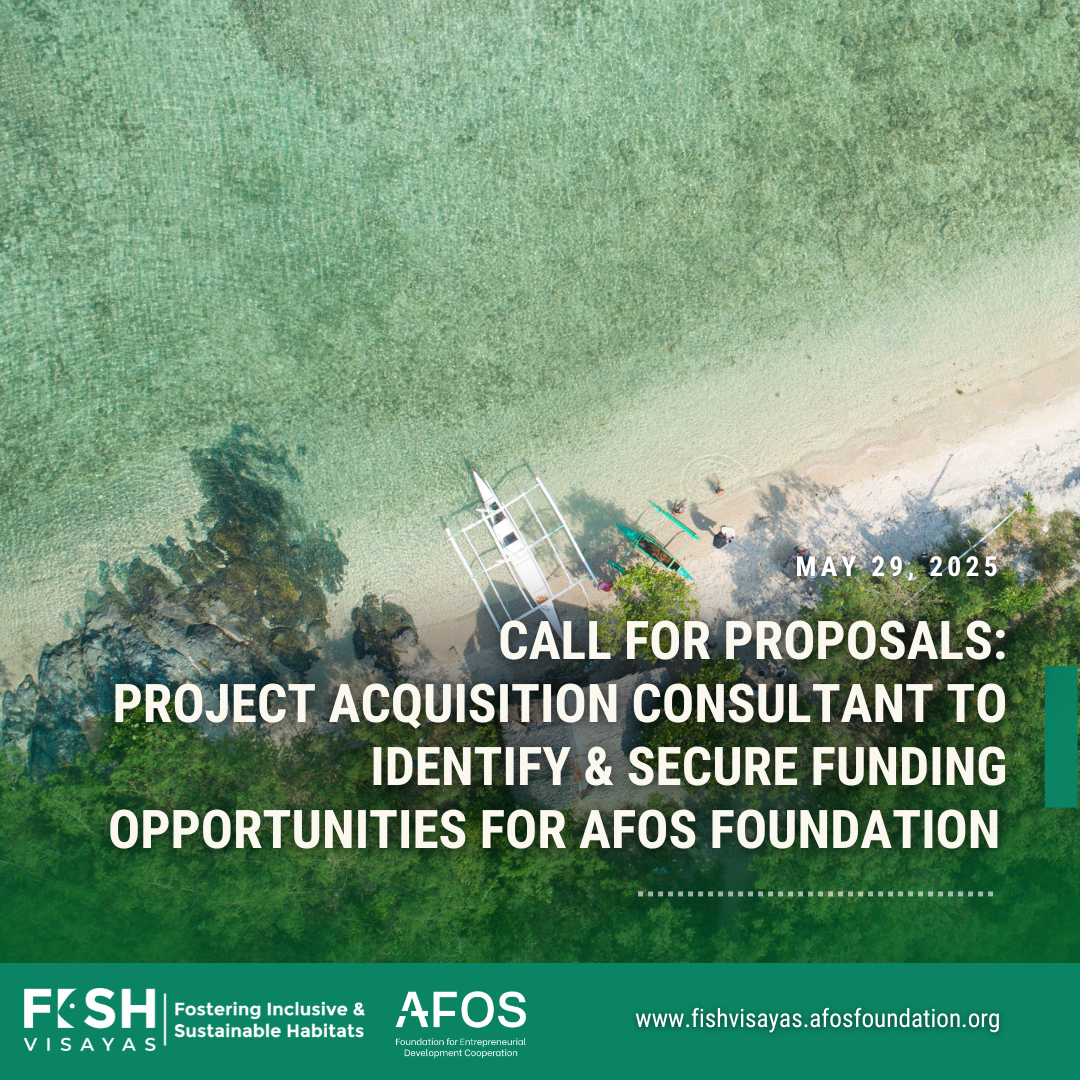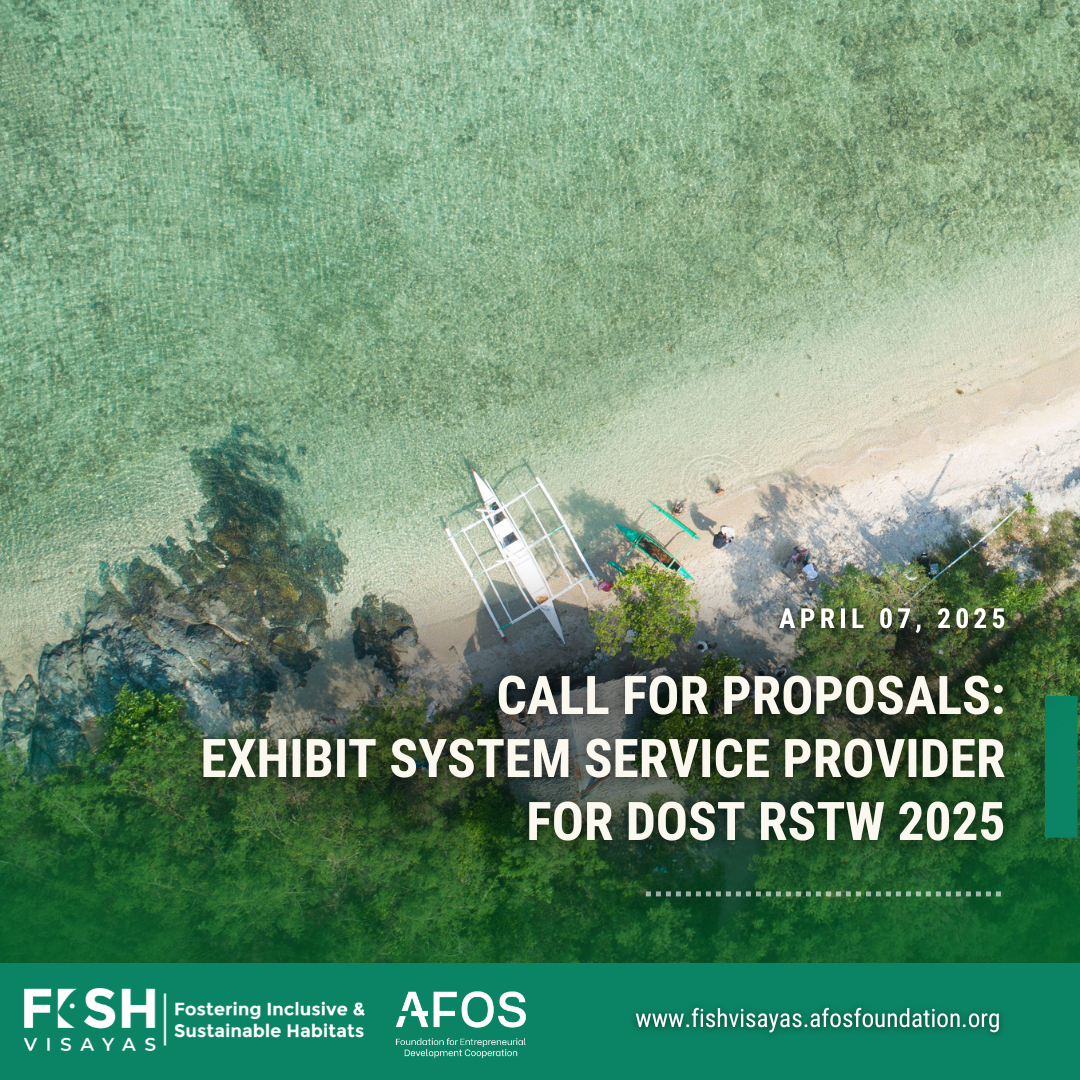ADVANCING BLUE ECONOMY AGENDA THRU FISH VISAYAS
FISH Visayas Project banners Blue Economy initiatives in Central Visayas
By Mary Ruth Ochavillo. Posted on JULY 02, 2025.






























Initiated in July 2022 and concluding in September 2025, FISH Visayas Phase II has rolled out a wide range of programs to enhance the capacities and livelihoods of fisherfolk and MSMEs. As the project nears completion, the forum served as a platform for key partners and stakeholders to reflect on progress, share insights, and highlight results.
- Yvette Hope P. Labus, Project Manager and Philippine Resident Representative, AFOS Foundation
- Tristan L. Abando, Ph.D., OIC, Office of the Regional Director, DOST VII
- Melanie C. Ng, Area Vice President – Visayas, Director for Small and Medium Enterprises (SME), Philippine Chamber of Commerce and Industry
- Mario N. Ruinata, Ph.D., Regional Director, Department of Agriculture – Bureau of Fisheries and Aquatic Resources -Cebu Provincial Fishery Office
- Julius P. Relampagos, Ph.D., Chair, Department of Economics, University of San Carlos.
- Miriam Bacalso, Moderator
- The Blue Economy offers a sustainable pathway for managing ocean and coastal resources.
- Collaboration among government, academia, civil society, and the private sector is essential to realizing this vision.
- The active involvement of fisherfolk and local government units (LGUs) is crucial to protecting and conserving marine ecosystems.
- Transitioning to a blue economy can be guided by the “Push-Pull-Enable” framework:
- Push through policy and climate risk awareness
- Pull through economic opportunities and disaster risk reduction
- Enable through information dissemination and capacity-building
- The successes of the FISH Visayas Project serve as a model that can be scaled and sustained to support the growth of blue economies in the region.
To ensure that project gains are sustained and scaled, the FISH Visayas Project has put forward policy recommendations aimed at institutionalizing successful interventions. These were presented by Mr. Bernard Vonn Sia, Vice President for Business Development of the Cebu Chamber of Commerce and Industry (CCCI), aligning with CCCI’s L.E.A.D. Agenda.
- That the DA – Bureau of Fisheries and Aquatic Resources (DA-BFAR), Department of Science and Technology (DOST), and the Department of Trade and Industry (DTI) sustain the conduct of training programs for Fisheries sector and MSMEs within the related food value chains.
- That the Technical Education and Skills Development Authority (TESDA) review, enhance and adopt the DET program of the Project as it is aligned to the organization’s mandate and objective of improving the skills of workers;
- That the Local Government Units (LGUs) provide the People’s Organizations in their localities with production facilities or facilitate the establishment of production infrastructures by tapping other resources such as from other national government agencies, councils or the private sector; and
- That the DA-Bureau of Fisheries and Aquatic Resources (DA – BFAR), the Department of Environment and Natural resources (DENR) and the Local Government Units (LGUs) strengthen the management of marine resources, support ecosystem protection and conservation to further improve the state of their marine resources and mitigate the effects of climate change and natural disasters.
MORE NEWS
Call for Proposals: Project Acquisition Consultant to Identify and Secure Funding Opportunities for AFOS Foundation
CALL FOR PROPOSALS Terms of Reference: Project Acquisition Consultant to identify and secure funding opportunities for AFOS Foundation Published by Mary Ruth Ochavillo on May 29, 2025 DESCRIPTION OF ASSIGNMENT Engagement of a Project Acquisition Consultant to identify and secure funding opportunities from various sources for the expansion of the FISH Visayas Project’s positive impacts, […]
FISH Visayas Project Recognizes Development Partners and Beneficiaries
CELEBRATING SUCCESS FISH Visayas Project Recognizes Development Partners and Beneficiaries By Mary Ruth Ochavillo. Posted on JULY 02, 2025. Previous Next Cebu City, Cebu – As part of the 2025 Regional Science, Technology, and Innovation Week (RSTW), the FISH Visayas Project paid tribute to its development partners and project beneficiaries during the Networking Night. The evening […]
FISH Visayas Project banners Blue Economy initiatives in Central Visayas
ADVANCING BLUE ECONOMY AGENDA THRU FISH VISAYAS FISH Visayas Project banners Blue Economy initiatives in Central Visayas By Mary Ruth Ochavillo. Posted on JULY 02, 2025. Previous Next Cebu City, Cebu – On April 23, 2025, the Fostering Inclusive and Sustainable Habitats (FISH) Visayas Project – Phase II initiated the FISH Visayas Forum, bringing together partners […]
Call for Proposals: Terms of Reference for an Exhibit System Service Provider for DOST RSTW 2025
CALL FOR PROPOSALS Terms of Reference: Exhibit System Service Provider for DOST RSTW 2025 Published by Mary Ruth Ochavillo on April 07, 2025. DESCRIPTION OF ASSIGNMENT An Exhibit System Service Provider to design, supply, install, and manage the exhibit infrastructure and related services for the 2025 Regional Science, Technology, and Innovation Week on April 23 […]




